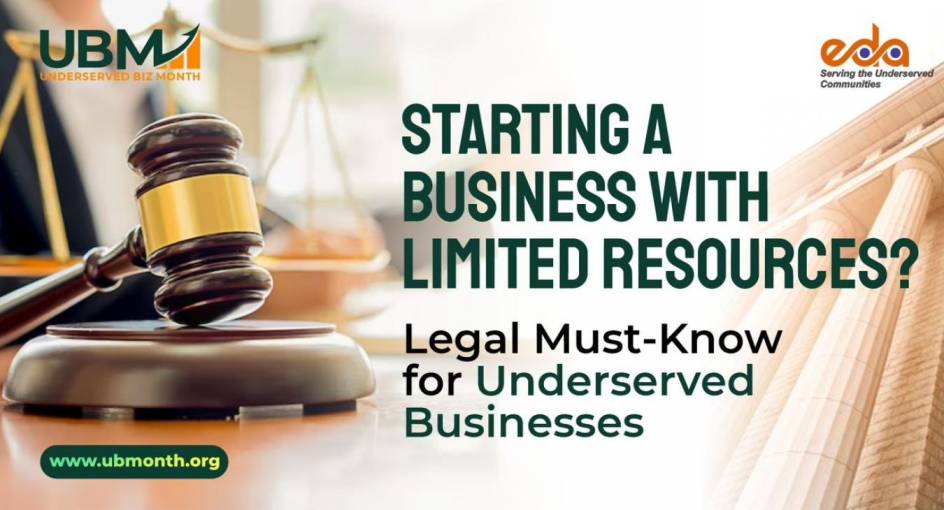
Starting a Business with Limited Resources? Legal Must-Know for Underserved Businesses
Launching your business and seeing all your dreams come alive can be exciting. But before you dive headfirst, there are some legal considerations to keep in mind, especially if you're an underserved business owner. Don't worry, you don't need a mountain of resources to navigate the legal world – a little knowledge goes a long way!
Why Legal Matters for Underserved Businesses
As a minority, woman, or someone starting a business in an under-resourced community, you might face unique challenges. Legal knowledge empowers you to make informed decisions and protect your business from potential pitfalls. Here are some common areas to consider:
Choosing the Right Business Structure: This might sound complicated, but it's essentially deciding how your business is legally organized. Will you be a sole proprietor, where you and your business are one and the same, or an LLC, offering some personal asset protection? Understanding your options is crucial.
Following the Rules: Every industry and location has regulations you need to follow. From zoning permits to health codes, ensuring compliance keeps you operating legally and avoids unnecessary fines.
Protecting Your Ideas: Got a brilliant concept or catchy brand name? Understanding intellectual property (think trademarks and copyrights) helps safeguard your unique creations.
Finding Help Without Breaking the Bank
Legal advice can seem expensive, but there are resources available to help underserved businesses! Here are a few places to start:
The SBA (Small Business Administration): Your friend in the business world, the SBA offers free counseling and workshops on various topics, including legal matters. Many local SBA offices even partner with lawyers who provide low-cost services to small businesses.
Law Schools and Legal Aid Clinics: Law student power can be utilized! Many law schools have legal clinics staffed by student attorneys supervised by experienced lawyers. These clinics often provide free or low-cost legal help to entrepreneurs.
Bar Associations: Some bar associations offer pro bono (free) legal services to low-income entrepreneurs. Check with your local bar association to see if they have such programs.
Essential Legal Steps for Every New Business
Even with limited resources, there are some key legal actions you should take:
Craft a Business Plan: This is your roadmap to success. It outlines your goals, target market, financial projections, and yes, even your legal structure. Having a solid plan helps you secure funding and stay focused.
Get the Permits You Need: Do your research and obtain all the necessary licenses and permits to operate legally. Non-compliance can cause headaches down the road, so it's best to start compliant.
Separate Your Finances: Keep your personal finances separate from your business finances by opening dedicated business bank accounts. This ensures clear records and protects your personal assets in case of legal issues.
Remember: This blog post serves as a general guide, not a substitute for personalized legal advice. Consulting with an attorney for your specific situation is always recommended.
Empower Your Entrepreneurial Journey
By familiarizing yourself with these legal considerations and seeking help when needed, you'll be well on your way to navigating the legal landscape with confidence.
Now go forth and build that thriving business!
